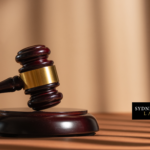High Court Rules on ICAC’s Power Struggle

After spectacularly losing to Margaret Cunneen in the High Court earlier this year, ICAC was put on the defensive when it realised that it had less power than it thought.
Anxious to prevent past decisions from being overturned, ICAC urged the NSW government to introduce legislation which would validate its previous findings, even if they were illegal at the time.
With bi-partisan support, a new law was rushed through Parliament – but not everyone approved.
Duncan Travers, himself engaged in a legal battle with ICAC for years, hoped that the courts would prevent the government from making retrospective laws, which he believed undermines the integrity of the legal system.
Retrospective legislation seeks to criminalise conduct that was perfectly legal in the past, or to validate conduct which was illegal at the time. There is an argument that such legislation is unfair because a person should not be punished for something that was perfectly legal when they did it, and, at the same time, an act that was illegal when it was performed should not be made legal later on – especially if it affects others.
What Does the New Law Say?
Regulation 35, Schedule 4 of the ICAC Act states that:
“Anything done or purporting to have been done by the Commission before 15 April 2015 that would have been validly done if corrupt conduct for the purposes of this Act included relevant conduct is taken to have been, and always to have been, validly done.”
This includes:
- Things done or purporting to have been done by any person or body, and
- Legal proceedings and matters arising in or as a result of those proceedings, if their validity relies on the validity of a thing done or purporting to have been done by the Commission.
There is no Australian law expressly preventing retrospective laws from being enacted, nor are such laws prohibited by our Constitution.
What Did the High Court Decide?
In 2013, the ICAC made adverse corruption finding against Mr Duncan in relation to the granting of a coalmining exploration licence in the Bylong Valley.
Mr Duncan appealed against the findings to the NSW Supreme Court, but was unsuccessful.
Emboldened by the Cunneen case, Duncan recently went to the High Court to challenge the retrospective legislation outlined above, and to seek a declaration that certain past findings of ICAC are invalid – including the finding against him.
The Justices in Duncan v ICAC looked comprehensively at previous decisions relating to retrospective legislation. Unfortunately for Mr Duncan and others hoping to challenge ICAC’s power, the High Court justices unanimously declared the legislation to be valid.
Mr Duncan’s argument was labelled as “distinctly implausible” and he was ordered to pay ICAC’s legal costs.
As well as effectively validating a large number of ICAC’s past decisions, the High Court reinforced the notion that retrospective legislation is permitted in a range of circumstances.
Justice Gaegler came to the conclusion:
“That which was “invalid” (in excess of the authority granted to ICAC by the Parliament) is thereby made “valid” (within the authority granted to ICAC by the Parliament).”
No doubt ICAC is relieved that the floodgates are now closed to potentially hundreds of appeals against its past decisions.






